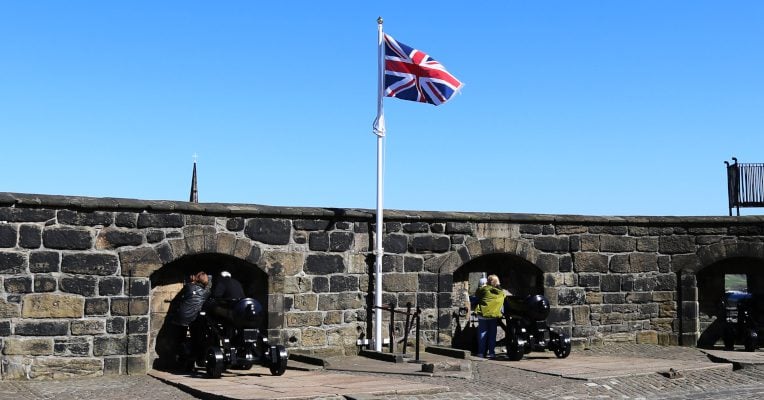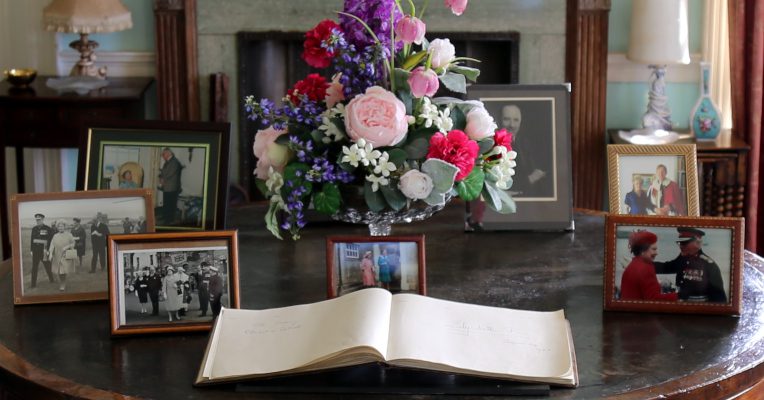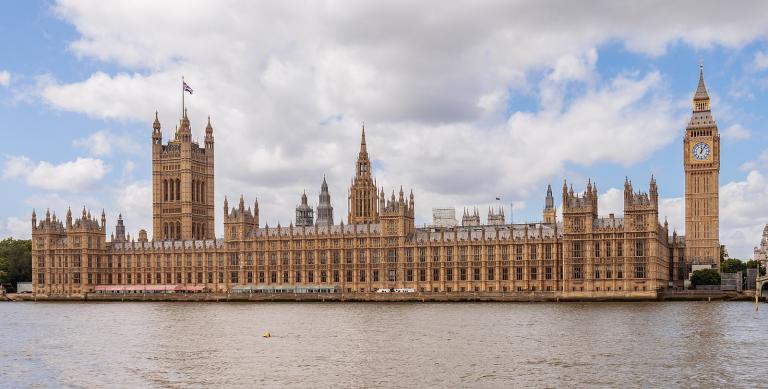Queen Elizabeth II is dead – now what?
Different people are feeling very different things, and I don’t tell people how they should feel.
For one thing, it’s useless. Right or wrong, justified or not, people feel what they feel. And for another thing, it annoys me to no end when people try to do it to me. It always has. “I hear what you’re saying, Mother, but I really do hate Richard Nixon.”
I know that some people, particularly in this country, don’t like the idea of monarchy and royalty. For the right, it’s all about 1776. For those on my side of the political aisle, it’s a moral objection to inherited wealth and power. Plus the royal family treated Princess Diana badly, and they’re doing it again with Meghan Markle.
I was not prepared for the level of hatred many expressed for Queen Elizabeth II upon her death.
I suppose I should have been. One of the primary functions of a monarch in modern times is to serve as a figurehead for the nation and a symbol of its heritage. So while some remember her for her devotion to her country and her duties, others remember her as a symbol of the largest empire in the history of the world, an empire that has oppressed and exploited hundreds of millions of people, an empire that while a fraction of its size a century ago has never been fully dismantled – much less atoned for.
If you’re happy Elizabeth is dead I’m not going to tell you you’re wrong. I understand your perspective, intellectually if not emotionally.
No, I do not believe we must speak no ill of the dead. I believe we should respect those who are grieving, but criticizing public figures in public spaces is always fair game.

The American fascination with British royalty
I’ve always had a fascination with monarchy and royalty. I’m a history nerd, and so much of history is the history of kings, queens, and lines of succession. Part of that is because historians tend to write about kings, queens, and lines of succession and not about ordinary people, but that’s another rant for another day.
But as an American, my fascination is a safe and sterile one. My taxes go to pay government officials a good salary (and they should), but they don’t go to support one particular family in unimaginable luxury and privilege. I think that’s one of the reasons so many Americans are fascinated with the British royalty. Yes, it’s part of our heritage – albeit a heritage we voluntarily diverged from – but we can watch all the pomp and circumstance knowing it doesn’t cost us a dime.
However, those of us on this side of the Atlantic should avoid the temptation to feel morally superior. I sometimes write about the “Anglo-American Empire” – it really is one thing. The nexus simply shifted from London to Washington and New York in the middle of the 20th century. Capital is no respecter of borders, and an empire needs no monarch to be oppressive and exploitative. The United States has a military presence in 80 countries and an economic presence virtually everywhere.
Is a republic really better than a constitutional monarchy?
The liberal distaste for kings aside, is a republic really a better form of government than a constitutional monarchy? Is France a better place to live than Britain? Is Germany better than Sweden? Is the United States better than Canada, where Prime Minister Justin Trudeau affirmed the country’s loyalty to King Charles III?
Perhaps what’s most important is not the form of government, but rather the virtue of the people in the government, and their responsiveness to the needs of their people and the needs of the wider world.
Should Britain do away with their royalty? Does the pageantry of the monarchy (and the tourist dollars and euros and pounds it brings in) help unite Great Britain? Royalists say yes, republicans (a word that means something very different on the other side of the Atlantic) say no. As an American I have no say in the matter, nor do I have the perspective to form a strong opinion. But watching the reports from Britain and seeing the outpouring of grief for Queen Elizabeth and the well wishes for King Charles, it’s obvious that whatever else it may be, the monarchy is deeply meaningful to many people.
I am fascinated by the monarchy and royalty and all the ceremony involved in this transition.

And yet…
Religion: established or not?
I watched the Accession ceremony and noted the prescribed roles of the Archbishop of Canterbury and the Archbishop of York. For all that Britain has become a largely-irreligious country, the Church of England is still the official church and the monarch is required to be a member in good communion of that Church. Charles is known to be religiously curious – he’s said he wants to be known as “defender of faith” instead of “defender of the faith.” We will have to wait for his coronation to see if that change is made.
Religious diversity in American government is more theoretical than practical: 44 of 46 U.S. Presidents have been Protestant Christians; the other two were/are Catholic Christians. But there is no official religious test in the United States, something that matters deeply to me as a Pagan.
It is ironic – though perhaps not – that a country that forbids the establishment of religion has a much stronger religiosity and practice than a country with an established church and an official religion. As someone who is deeply religious and wants to see religion in general thriving (though there are types of religion I would very much like to see disappear) I’m glad there is no established religion in this country, and I will continue to work to prevent that from happening.
Fixed lines of succession
Charles’ time as Prince of Wales is being called “the world’s longest apprenticeship.” There’s something to be said for a fixed line of succession, especially after our own Game of Thrones moment in late 2020 and early 2021. Sometimes – as with Elizabeth – that means a short apprenticeship. Wikipedia tells me that Æthelred the Unready wasn’t really unready, but Edward VIII certainly was.
But is Charles the best person for the job? We can safely say he’s better than Andrew, but is he better than Anne or Edward (who, I’ll point out, is the only one of the Queen’s four children still married to their first spouse)? Would it be better to skip this generation and move directly to William? Or perhaps there’s someone we’ve never heard of who’d make a better monarch. We’ll never know.
What must it be like to grow up knowing your life is already planned for you? Does Charles even want to be King? I’m not suggesting we should feel sorry for him. Ultimately, it’s his choice to accept this role or not. His great uncle Edward VIII chose otherwise. His son Harry appears to be choosing otherwise, though that remains to be seen.
Despite elections that are open and free (mostly) the United States is led by people Charles’ age and older. Are they the best people for their jobs or are they simply clinging to power? I’m happy with the job Joe Biden is doing (especially over the last six months or so) but I would have preferred a younger person in office.
There is no perfect way of selecting leaders, and this section ignores the fact the that UK elects their leaders who have real power (though their Prime Minister is elected even more indirectly than our President). But I prefer open competition to fixed lines of succession.

There is no perfect form of government
The founders of this country got a lot of things wrong, most notably the perpetuation of slavery. They were not Gods and should not be remembered as such. But they got some things right, especially forbidding an established religion and religious tests, and forbidding titles of nobility.
There is no perfect form of government (and “no government” is worse). I prefer the American way of doing things, but looking at examples from around the world, I can’t say that a republic is demonstratively better than a constitutional monarchy.
I can say that empires are bad, and also, that all empires eventually crumble. It would help if we would dismantle what’s left of the Anglo-American empire instead of waiting for it to fade into insignificance – or to be supplanted by a different empire.
The Queen is dead – now what?
People feel what they feel, whether that’s grief, pride, anger, or hatred.
My hope is that after our initial emotions fade – whatever they may be – we will all pick up the work of building a better world, one that is compassionate, fair, and just.
Changing our form of government – whether we are Americans, Britons, or otherwise – is a long and complicated process.
Electing better people to run the governments we have is something we can do much faster and more easily.
In this country, that means voting wisely – in every race – on November 8.
















